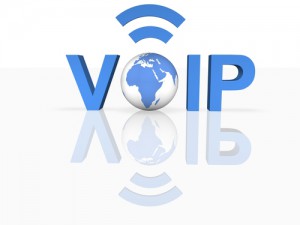
The migration to cloud contact centers is underway. And if you haven't already migrated your telephony to VoIP, you will when you move to a cloud contact center.
When companies switch to VoIP for their contact centers, most of them (especially smaller ones) use hosted VoIP. With hosted VoIP, you pay a provider for your VoIP. That’s the default way of going and is consistent with the spirit of cloud computing—outsourcing the IT to another party and paying for the services that you consume.
But there’s another option: the VoIP PBX. With a VoIP PBX, you still use VoIP for your calls, but you purchase, manage, and maintain the hardware that it takes to run the VoIP system.
The advantages of VoIP PBX lie in the fact that it is under your control. You get the features, control, and performance that you want.
So just like cloud computing can mean using a pubic cloud and outsourcing the infrastructure or a private cloud where you use your own servers, VoIP also offers similar choices.
Small and mid-size companies are more likely to choose classic hosted VoIP, but larger companies are more likely to have the resources and interest in using VoIP PBX. In fact, many larger companies already have VoIP PBX for their office voice lines. And if they don’t, a move to a VoIP-based cloud contact center may provide enough incentive to make the larger move.
If you are interested in reading more, check out the CBP Research paper, "Settling the VoIP Debate: Hosted VoIP vs. VoIP PBX". (You have to fill out a registration form, but there's no charge.)
